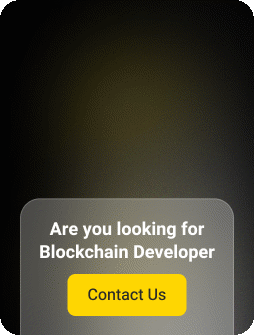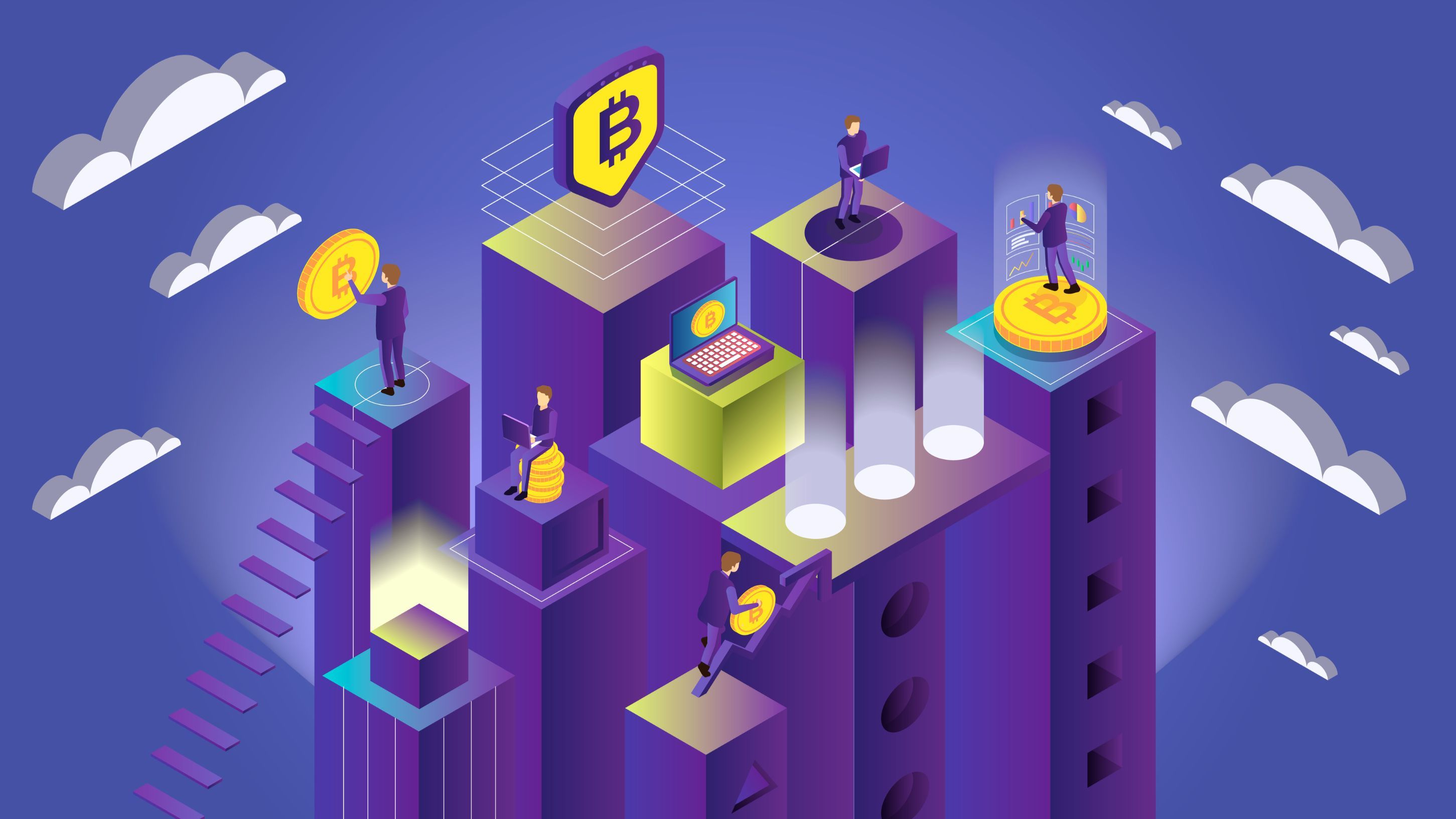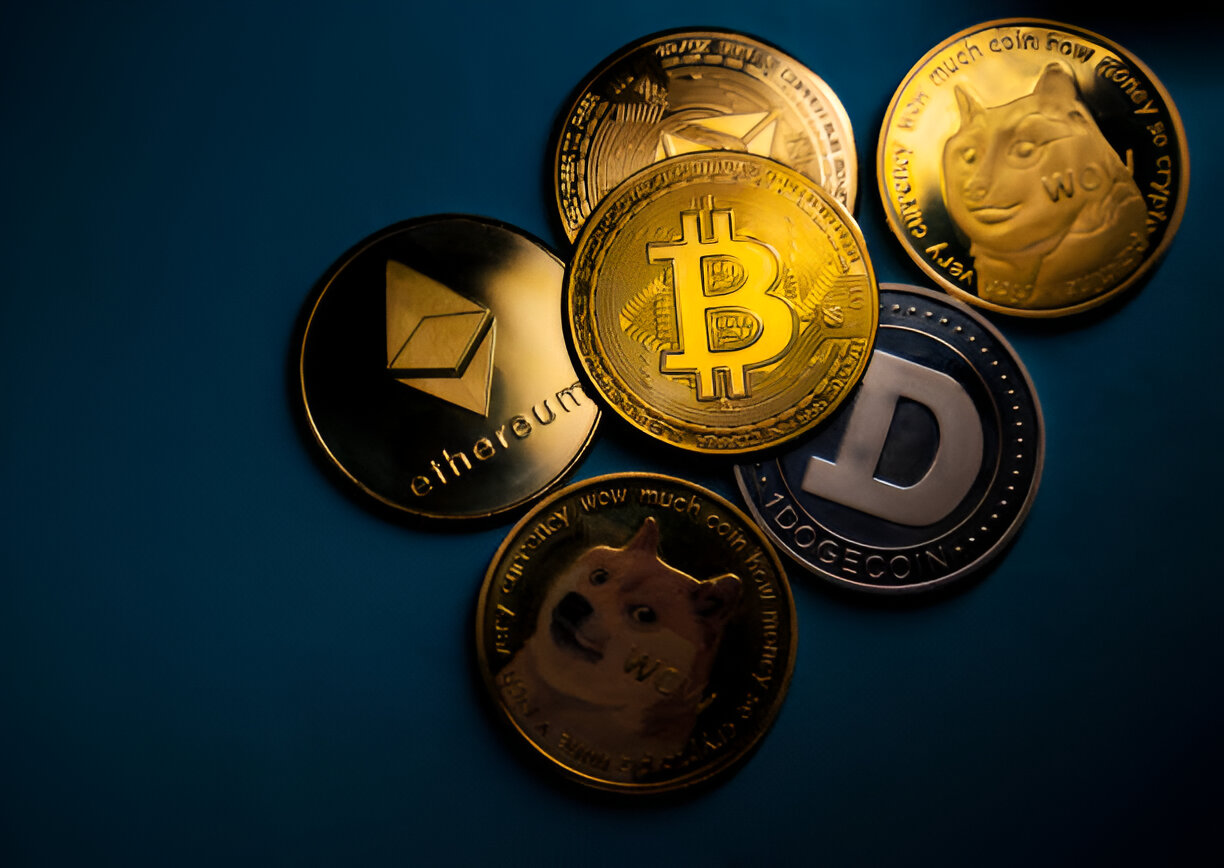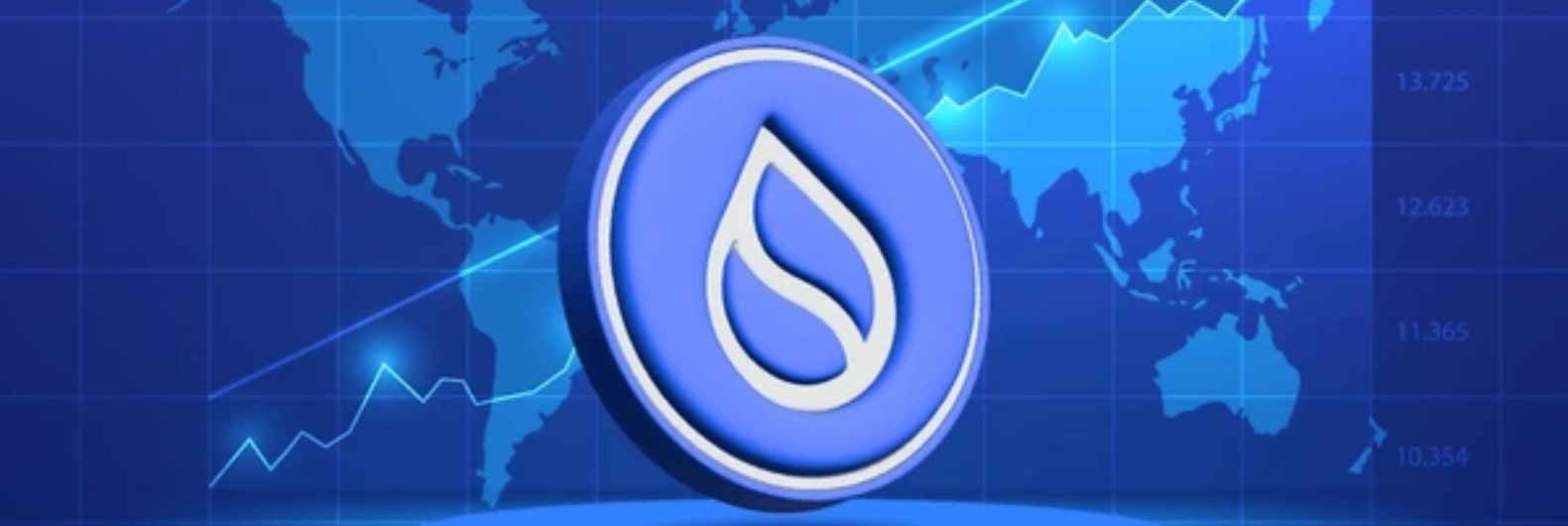Decentralized Finance, or DeFi, is changing the way we handle money by using cryptocurrency and blockchain technology.
Instead of relying on traditional banks or financial institutions, DeFi allows people to connect directly with each other to manage all kinds of financial tasks. Whether it's everyday banking, getting a loan, or trading assets, DeFi aims to make finance more accessible and fair for everyone.
As DeFi grows, it's starting to show real-world benefits that could reshape the future of finance.
Decentralized Finance, or DeFi, is a new approach to financial services that operates on public blockchain networks like Ethereum. Unlike traditional finance, which relies on banks or intermediaries, DeFi uses "smart contracts"—pieces of code that automatically execute transactions when certain conditions are met.
These smart contracts power decentralized applications, or "dapps," which allow people to lend, borrow, trade, and exchange assets directly with each other. By removing the need for intermediaries, DeFi makes financial services more accessible and open to everyone around the world.
DeFi is catching on quickly, and for good reason. With major use cases of DeFi, It offers a fresh, user-friendly approach to managing money, without the need for lengthy applications or complex approval processes. Just set up a digital wallet, and you're in.
1. Quick and Lucrative
In DeFi, things move fast. Interest rates and rewards can update as often as every 15 seconds, which means you can potentially earn much higher returns compared to traditional financial systems.
2. No Hassle, No Accounts
Forget about complicated account setups. With DeFi, all you need is a digital wallet to access a wide range of financial services, making it easy for anyone to dive in.
3. See Everything, Always
Transparency is a cornerstone of DeFi. Every transaction is recorded on the blockchain and visible to everyone, offering an open and trustworthy system that stands in contrast to the often opaque world of traditional finance.
4. Total Control of Your Money
DeFi gives you the freedom to move your assets anytime, anywhere, without waiting on approvals or paying hefty fees. You’re in charge, with no one else calling the shots.
5. Privacy First
Your personal information stays with you. DeFi transactions don’t require you to provide your name, email, or other private details, giving you a level of privacy that traditional banks just can’t offer.
With its emphasis on speed, privacy, and control, DeFi is transforming how we think about finance.
Decentralized Finance (DeFi) is all about cutting out the middleman. Instead of relying on banks or financial institutions, DeFi uses peer-to-peer (P2P) transactions, where two parties can exchange cryptocurrency directly for goods or services. This approach brings a lot of benefits, making finance more accessible, secure, and flexible.
Making Finance Accessible to Everyone
One of the biggest draws of DeFi is its accessibility. If you’ve got an internet connection, you can tap into a DeFi platform from anywhere in the world. There are no geographic barriers, meaning that people who’ve traditionally been excluded from financial services now have a way in.
Lower Costs and Higher Returns
Then there’s the financial upside—low fees and high returns. DeFi platforms allow you to cut out the usual banking fees, and because it’s a direct agreement between two parties, you can negotiate interest rates that actually make sense for both sides. Whether you’re looking to lend or borrow, DeFi networks offer a straightforward and potentially more profitable alternative.
Ensuring Security and Transparency
Security and transparency are also at the core of DeFi. Transactions are secured by smart contracts that are published on the blockchain. These contracts are open for anyone to inspect, providing transparency, yet they keep your identity private. Plus, the blockchain itself is immutable, which means once a transaction is recorded, it can't be altered—so you can trust that the records are accurate and tamper-proof.
Gaining Financial Independence
Finally, there’s the benefit of autonomy. Unlike traditional financial systems that are controlled by centralized institutions, DeFi operates independently. This decentralized nature means there’s no need to rely on banks to manage your money, reducing costs and giving you more control over your financial activities.
In a nutshell, DeFi aims to create a financial system that’s open to everyone, more secure, and less reliant on traditional financial institutions. It’s about putting power back into the hands of the people and building a more inclusive financial future.
Defi use cases are a lot, one major one is supply chain.
Supply chain finance has always been a bit of a headache. With slow processes, high costs, and too many middlemen. But with DeFi, we're seeing a shift toward a more efficient and transparent system.
With blockchain technology, DeFi automates transactions through smart contracts, making sure payments are processed as soon as goods move through each stage of the supply chain. This eliminates delays and cuts down on costs, creating a smoother experience for everyone involved.
And here’s the kicker: DeFi opens up new funding opportunities for small and medium-sized businesses by connecting them directly with global investors, skipping the usual financial roadblocks. It’s a win-win for businesses looking to streamline their operations and improve cash flow.
Imagine being able to access a loan without the hassle of dealing with a bank. That’s what DeFi is bringing to the world of microfinance. Traditionally, microfinance comes with high-interest rates and limited options, especially in underserved areas.
With DeFi, all of that is changing. It allows people to connect directly with lenders, using DeFi smart contract development to manage everything from loan approval to repayment. This direct connection not only lowers costs but also expands access to capital, making financial services available to people who need them most.
For communities in developing regions, this means greater economic opportunities and a chance to grow their businesses or improve their lives. DeFi is turning the microfinance world on its head, and the results are empowering.
The real estate market has always been known for its slow, cumbersome processes. But what if buying and selling property could be as easy as trading stocks? DeFi is making that possible.
By leveraging blockchain, DeFi streamlines real estate transactions, cutting out the need for brokers, lawyers, and other middlemen. Smart contracts handle the heavy lifting, ensuring that deals are done quickly and securely.
One of the most exciting developments is fractional ownership. With DeFi, you can own a piece of a property, just like you would own shares in a company. This opens up real estate investment to a broader audience, making it more accessible and democratic.
Healthcare is complicated enough without having to worry about slow payments and insurance hassles. That’s where DeFi comes in, offering a way to simplify the financial side of healthcare.
Smart contracts can automate payments to healthcare providers, ensuring they get paid promptly and accurately. This reduces administrative burdens and improves cash flow, which is critical in a sector where timing is everything.
But DeFi’s potential doesn’t stop there. It’s also paving the way for decentralized insurance models. These new systems pool resources from around the world, offering a more affordable and accessible alternative to traditional insurance, especially in areas where healthcare costs are prohibitive.
The energy industry has long been dominated by a few big players, but DeFi is starting to shake things up. Imagine being able to buy and sell energy directly with your neighbors—DeFi makes this possible through peer-to-peer energy trading.
Using smart contracts, these transactions are fast, transparent, and efficient. This not only lowers costs but also encourages the use of renewable energy, as small producers can easily sell their excess energy back to the grid.
DeFi also introduces new ways to fund clean energy projects. Investors can now directly support sustainable initiatives, benefiting from their success while contributing to a greener future. It’s a powerful example of how DeFi can drive positive change in even the most established industries.
Decentralized Finance (DeFi) is more than just a buzzword. It's a fundamental shift in how we think about and interact with financial systems.
By leveraging blockchain technology with the help of DeFi development company and peer-to-peer networks, DeFi opens up new opportunities for people around the world, offering greater accessibility, lower costs, enhanced security, and true financial autonomy.
As DeFi continues to evolve, it's clear that its impact will be far-reaching, transforming industries like supply chain finance, microfinance, real estate, healthcare, and energy. While we're still in the early stages of this revolution, the potential for DeFi to create a more inclusive, transparent, and efficient financial ecosystem is undeniable.
Whether you're an individual looking to take control of your finances or a business seeking new ways to operate, DeFi offers a fresh perspective and a wealth of possibilities.
As we move forward, embracing this new financial frontier could unlock opportunities that were once out of reach, paving the way for a more equitable and innovative future.















